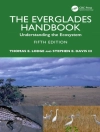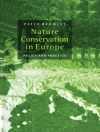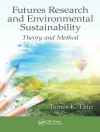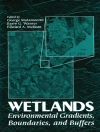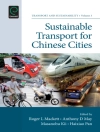This book comprehensively assesses the management of micro and nano-plastics in contaminated soil and biosolids, highlighting recent techniques and technologies that facilitate their environmental remediation. It provides up-to-date information on the fate, occurrence, monitoring, and transport of micro and nano-plastics in the environment, aiming to determine their detrimental impact on environmental health. The book also explores how risk factors associated with these particles can be identified and mitigated through sustainable means. Micro and nano-plastic contamination is analyzed in various contexts, including agricultural soil systems, urban areas, and wastewater. Special attention is given to the mechanisms of recent decontamination strategies, such as microbial and enzyme-assisted degradation and biochar. The intended audience for this book includes students, researchers, professionals in the urban municipal wastewater treatment sector, waste management and industrial practitioners, as well as policymakers.
Spis treści
Chapter 1. Microplastic and nano plastic: a threat to the environment.- Chapter 2. Impact of microplastics and nanoplastics in the aquatic environment.- Chapter 3. Microplastics an emerging environmental issue: its bioremediation, challenges, and a future perspective.- Chapter 4. Micro-nanoplastics from Stormwater Runoffs to Water Bodies: An In-Depth Investigation.- Chapter 5. Micro-Nano-plastics in the Environment: Current Research and Trends.- Chapter 6. Beneath the Surface: Unraveling the Impact of Micro and Nano Plastics on Plant Performance.- Chapter 7. INTERACTION OF MICRO-NANO-PLASTICS AND HEAVY METALS IN SOIL SYSTEMS: MECHANISM AND IMPLICATION.- Chapter 8. Effects of micro-nanoplastics exposure to earthworms in the soil system.- Chapter 9. TOXICOLOGICAL EFFECTS OF MICRO AND NANO PLASTICS ON SOIL FAUNA: CURRENT RESEARCH, ADVANCES, AND FUTURE OUTLOOK.- Chapter 10. Long-term fate of micro/nanoplastics in Soil Systems and their impacts.- Chapter 11. Adsorption Behavior and Interaction of Micro-Nano Plastics in Soils and Aquatic Environment.- Chapter 12. Dynamics of biodegradable plastics in the process of food waste biotreatment and environmental risks of residual plastics fragments.- Chapter 13. Occurrence and Fate of Microplastics in Anaerobic Digestion of Dewatered Sludge.- Chapter 14. Micro-Nano-plastics in Sewage sludge: Sources, Occurrence, and Potential Environmental risks.- Chapter 15. Cleaning Up the Smallest Pollutants: The Potential of Microbial Degradation in Tackling Micro- and Nano-Plastic Pollution.- Chapter 16. Enzyme Assisted Biodegradation of Micro-Nanoplastics: Advances and Future Outlook on the Management of Plastic Pollution.- Chapter 17. Microbial Nanobioremediation of Micro-Nanoplastics: Current Strategies, Challenges and Future Prospects.
O autorze
Dr. Sartaj Ahmad Bhat is working as JSPS Postdoctoral Researcher at the River Basin Research Center, Gifu University, Japan. He received his Ph.D. in Environmental Sciences from Guru Nanak Dev University, Amritsar, India in 2017. His research interests focus on vermicomposting treatment of various solid wastes, especially for investigations on fate and behavior of emerging pollutants during biological treatment of organic wastes. He has published more than 65 papers in peer-reviewed journals and edited over 14 books published by Elsevier, Springer, CRC Press, IWA, and RSC. Dr. Bhat is serving as an Associate/Academic Editor and Editorial Board Member/Advisory Board Member of more than 15 journals published by Frontiers, Springer, Elsevier, PLOS, Wiley, Hindawi, and De Gruyter. Dr. Bhat is a recipient of several prestigious awards such as the JSPS Postdoctoral Fellowship to pursue research at River Basin Research Center, Gifu University, Japan, the Basic Scientific Research Fellowship (BSR JRF, SRF) by the University Grants Commission (UGC) India, the DST-SERB National Postdoctoral Fellowship at CSIR-NEERI, Nagpur, India and Swachhta Saarthi Fellowship by the Govt. of India. He has also received the 2020 Outstanding Reviewer Award by the International Journal of Environmental Research and Public Health, MDPI, and the Top Peer Reviewer 2019 award in Environment and Ecology by Web of Science. He has more than 750 Verified Reviews and 70 Editor Records to his credit.
Dr. Vineet Kumar is presently working as a National Postdoctoral Fellow in the Department of Microbiology at Central University of Rajasthan, India. He received his M.Sc. and M.Phil. in Microbiology from the Department of Microbiology at Ch. Charan Singh University, Meerut, India. Subsequently, he earned his Ph.D. in Environmental Microbiology from Babasaheb Bhimrao Ambedkar (A Central) University, Lucknow, India in 2018. His research interests include waste management, bioremediation, phytoremediation, metagenomics, wastewater treatment, environmental monitoring, bioplastic, and biofuel production. He has published more than 50 articles in peer-reviewed international journals of repute, 55 book chapters, 1 technical report, and 4 scientific magazine articles, with more than citations 2500, and h-index 30. In addition, he has published 2 authored and 22 edited books on various aspects of science and engineering by renowned international publishers. He has been serving as a guest editor and reviewer in more than 65 International Journals for his research area. He is an active member of numerous scientific societies including the Microbiology Society (UK), the Indian Science Congress Association (India), the Association of Microbiologists of India (India), the Biotech Research Society (India). He is founder of the Society for Green Environment, India (website: www.sgeindia.org).
Prof. Fusheng Li is a Professorin the Division of Water System Safety and Security Studies and the Graduate School of Engineering at Gifu University, Japan. He received his BS degree in environmental engineering from Lanzhou Jiaotong University of China in 1986, MS degree from Kitami Institute of Technology of Japan in 1994, and Ph D degree from the Gifu University of Japan in 1998. Dr. Li is directing the Division of Water Quality Studies that covers the fields from water quality to water and wastewater treatment, and recently to resource and energy recovery from organic waste. The ongoing research projects in his lab include adsorption; membrane filtration, enhanced coagulation, disinfection; biological water and wastewater treatment; vermicomposting treatment of vegetable waste and activated sludge; microbial fuel cell; physicochemical water quality assessment; biological water quality assessment. He has over 350 scholarly publications, including more than 200 in peer reviewed journal papers. As principal supervisor, he has already guided 50 master’s and 20 doctorate graduate students to the completion of their degrees. Dr. Li is the recipient of awards from several academic societies and associations for his research work on water treatment and water quality dynamics studies.
Prof. Sunil Kumar is a well-rounded researcher with more than 22 years of experience in leading, supervising, and undertaking research in the broader field of Environmental Engineering and Science with a focus on Solid and Hazardous Waste Management. Dr. Kumar is a graduate in Environmental Engineering and Management from the Indian Institute of Technology, Kharagpur, India. He completed his Ph. D. in Environmental Engineering from Jadavpur University, Kolkata, India. His primary area of expertise is solid waste management (Municipal Solid Waste, Electronic waste etc.) over a wide range of environmental topics including contaminated sites, EIA, and wastewater treatment. His contributions in thesefields led to a citation of approx. 15300, h-index of 62, and i10-index of 252 (Google scholar). His contributions since inception at CSIR-National Environmental Engineering Research Institute (NEERI), India in 2000 include approx. 300 refereed publications, 05 books, and 40 book chapters, 10 edited volumes, and numerous project reports to various governmental bodies and private, local, and international academic/research bodies. He is the Associate Editor of peer-reviewed journals of international repute i.e., Environmental Chemistry Letter, International Journal of Environmental Science & Technology, ASCE Journal of Hazardous, Toxic and Radioactive Waste. He also served as Editorial Board Member of Bioresource Technology, Elsevier during 2017-2023. He has completed more than 22 research projects as PI with 15 (11 awarded) Ph. D. and 20 M. Phil/M. Tech thesis/dissertations. Dr. Kumar was awarded the most prestigious award Alexander von Humboldt-Stiftung Jean-Paul-Str.12 D-53173 Bonn, Germany as a Senior Researcher for developing a Global Network and Excellence for more advanced research and technology innovation.




